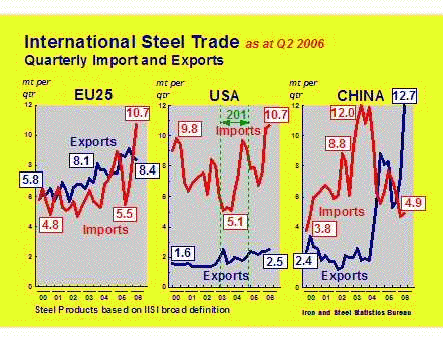Some Pearls of Wisdom from Mr. Faber:
"...bull market in financial markets...that bull market is over. Its over for a long time to come."
Mortgage rates will go up due to market pressure, regardless of the Fed. The Fed is ineffective and inept organization.
Anyway, enjoy:
Mr. Faber seems also very surprised by the speed of the slowdown.
So in summary:
a) Substantial downturn in the global economy (World is in recession)
b) Technology sector is vulnerable
c) Equities in the US and financial stocks may be oversold in the short-term
d) Industrial commodities are due for a correction in Q3/Q4
e) Freddie/Fannie should issue stocks and be splitted up in 6-10 entities
Worst case scenario: stagflation thanks to CBs.
Take away: No place to hide...
"...bull market in financial markets...that bull market is over. Its over for a long time to come."
Mortgage rates will go up due to market pressure, regardless of the Fed. The Fed is ineffective and inept organization.
Anyway, enjoy:
Part 1
Part 2
Part 2
Mr. Faber seems also very surprised by the speed of the slowdown.
So in summary:
a) Substantial downturn in the global economy (World is in recession)
b) Technology sector is vulnerable
c) Equities in the US and financial stocks may be oversold in the short-term
d) Industrial commodities are due for a correction in Q3/Q4
e) Freddie/Fannie should issue stocks and be splitted up in 6-10 entities
Worst case scenario: stagflation thanks to CBs.
Take away: No place to hide...




 .
.
Comment